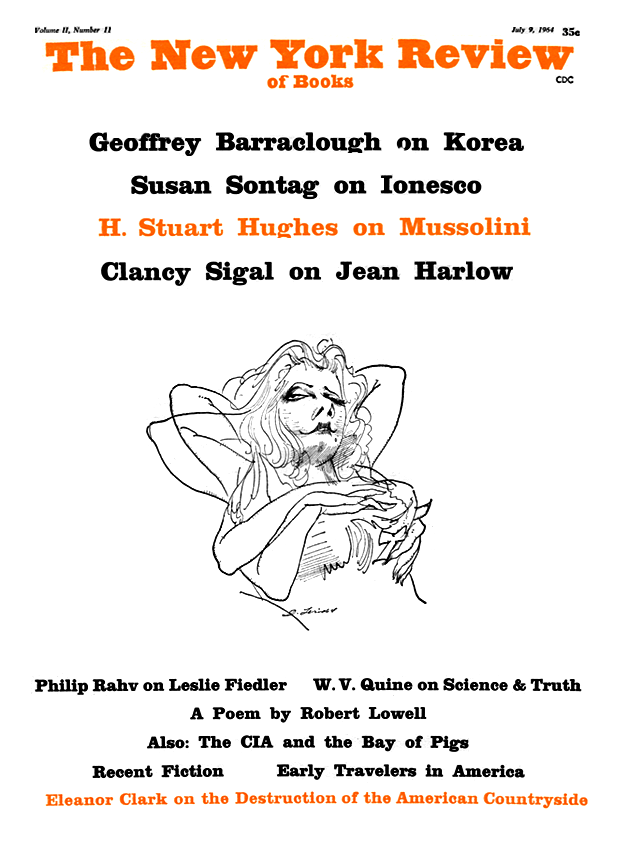In response to:
Graves's Mythology from the April 16, 1964 issue
To the Editors:
It is disconcerting to read in H. H. Rowley’s review of the Graves and Patai Hebrew Myths (NYRB, 4-16) that “there is nothing fundamentally new in the enterprise of the authors [because] in recent years Cyrus Gordon has emphasized the link between the literature of Greece and the mythology of the ancient Near East.”
With all due respect to Gordon, whose theory connecting Cretan Linear A with Semitic may prove to be epoch-making, Graves has been emphasizing the link between Greece and the Near East for several decades. For example The White Goddess. For example King Jesus. For example the astounding essay on “Pharaoh’s Chariot Wheels” in Graves’s Occupation Writer.
I cannot speak for Graves (no one but Graves would dare), but surely he does not claim anything “fundamentally new” in the basic philosophy behind Hebrew Myths. But it was new—shockingly, excitingly seminally new for the intellectual life of our particular branch of civilization—when Graves announced it to us so long ago.
Let the reviewer beware of stabbing too blindly: the blood that flows can easily be his own.
Merrill Martin
New York City
H. H Rowley replies:
I am grateful to your correspondent, Merrill Martin, for his confirmation of my accuracy in saying that there is nothing fundamentally new in the enterprise of the book I was reviewing. I neither stated not implied that Cyrus Gordon is the only person who has found links between Greece and the east, and Mr. Martin’s carrying this back much farther than I did makes this part of the enterprise even less new than my review may have suggested.
This Issue
July 9, 1964


